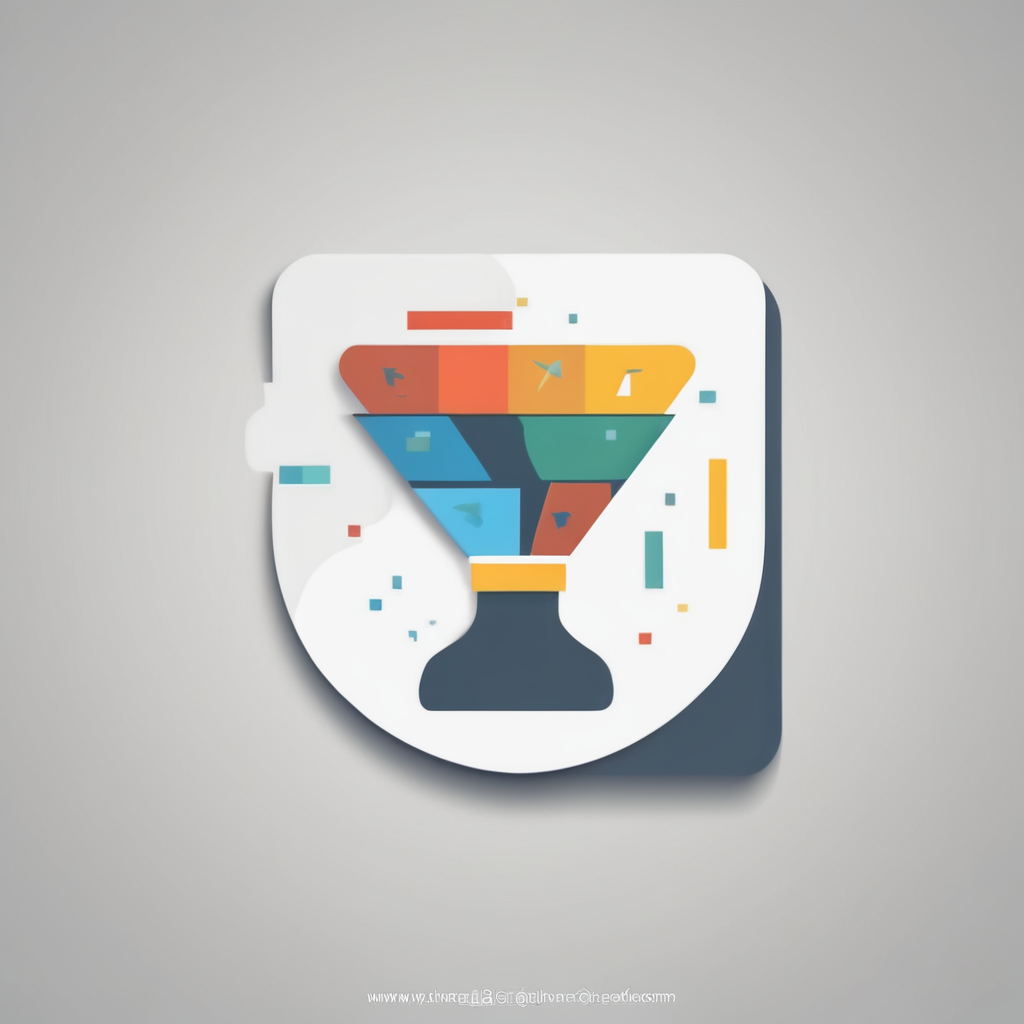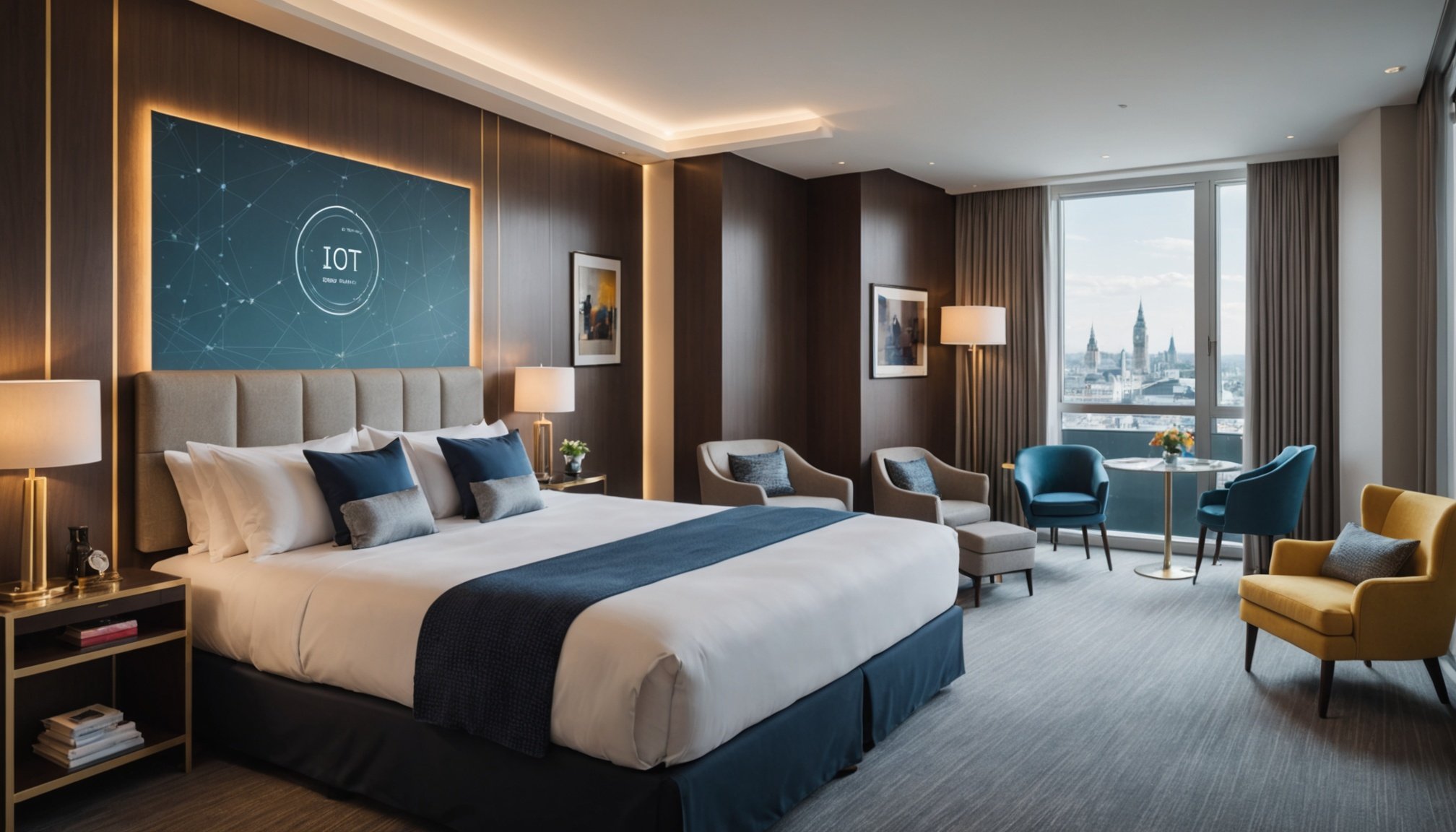Overview of IoT Innovations in the Hotel Industry
The Internet of Things (IoT) in hospitality refers to interconnected devices that communicate over the internet to optimize operations and enhance guest experiences. IoT in hospitality has become essential in improving efficiency and guest satisfaction. It operates on the principle that devices can gather, share, and analyze data to perform functions like adjusting room temperatures or automating check-in processes.
In the UK hotel sector, the adoption of IoT in hospitality is on the rise, reflecting broader trends in technology advancements. Technology advancements in IoT enable personalized guest experiences, making stays more comfortable and memorable. For instance, smart rooms can automatically adjust lighting and curtains to a guest’s preference, demonstrating how IoT in hospitality leverages technology advancements to enhance service quality.
In parallel : Navigating Regulatory Waters: Key Compliance Strategies for UK Fintech Startups to Succeed
Hotel innovations driven by IoT are redefining accommodation standards. This includes seamlessly integrating booking platforms with hotel management systems, allowing guests to customize aspects of their stay even before arrival. The ongoing IoT adoption trends also hint at future possibilities, such as voice-activated room service or AI-driven concierge services. These hotel innovations highlight the transformative power of technology advancements in reshaping the hospitality landscape in the UK.
Key IoT Technologies Impacting Guest Satisfaction
Smart room technology is revolutionizing how guests experience their stay, focusing on personalized services. In today’s tech-savvy world, guests expect more from their accommodations. Smart room controls play a crucial role by allowing guests to tailor their environment to their preferences, such as adjusting lighting, temperature, and entertainment with just a touch of a button or voice command.
Topic to read : Transform Guest Loyalty: Creative Approaches for UK Hotels to Build Enduring Relationships
Imagine walking into a hotel room where the lighting automatically adjusts to your preferred setting, the temperature moderates to your liking, and your favorite playlist begins to play. This is no longer a futuristic fantasy, but a reality enabled by IoT. These personalized services enhance guest comfort, making their stay a memorable experience.
Furthermore, IoT-enabled personal devices provide guests with tailored experiences. For instance, smart assistants can recommend local attractions based on guests’ preferences, enhancing their overall travel experience without the dread of information overload.
Automation in amenities and services provides significant benefits. From streamlining check-in processes to customizing in-room dining options, these advancements reduce wait times and increase overall efficiency. Ultimately, guest comfort is heightened, establishing a solid base for enhancing satisfaction and fostering loyalty among patrons.
Case Studies of IoT Implementations in UK Hotels
Exploring the practical benefits of IoT in UK hotels showcases remarkable progress in tech-driven hospitality. Through case studies, we can evaluate how various establishments have achieved implementation success and gathered positive guest feedback.
Case Study: A Major London Hotel
A major London hotel integrated smart room controls and automated check-in systems. These advancements resulted in more personalised guest experiences and streamlined operations. Guests reported increased satisfaction due to the seamless control over room settings via mobile apps.
Case Study: Regional Boutique Hotels
Regional boutique hotels adopted IoT solutions like smart energy management systems and virtual concierges. These were crucial for sustainability efforts and personalised guest services. Feedback highlighted how guests appreciated the innovative features that enhanced comfort and convenience.
Case Study: Luxury Hotel Chains
In luxury hotel chains, IoT was pivotal in enhancing upscale experiences. Implementation of IoT included intelligent lighting, advanced security, and customised entertainment options, which delighted both guests and staff. The success of these technologies was reflected in improved service delivery and stellar guest reviews, marking a technological milestone for UK hospitality.
IoT implementations in these UK hotel examples have not only improved operational efficiency but also elevated guest experiences, shaping a new era of hospitality excellence.
Statistical Insights on Guest Satisfaction Improvements
Understanding guest satisfaction metrics is crucial for any business relying on public opinion for performance measures. One significant area of study involves the impact of Internet of Things (IoT) technology. Recent research on survey results reveals a substantial enhancement in customer experience before and after IoT implementation.
Data illustrates a noteworthy change: prior to IoT integration, satisfaction levels hovered around an average score of 70%. Post-implementation, this figure has escalated to an impressive 85%. These numbers alone depict the transformative potential of IoT technologies in engaging and pleasing customers.
Analyzing what drives these changes, it becomes evident that guest preferences are notably influenced by IoT-impact statistics. Features such as smart room controls and automated services contribute to an enriched user experience.
Key Performance Indicators (KPIs) related to guest experience further underscore this transformation. Metrics like response time, personalized service, and convenience have shown marked improvements, aligning closely with rising satisfaction scores.
- Smart room controls increased convenience
- Efficient automated services enhanced response times
- Personalization tailored guest experience to preferences
These insights underline the vital role of IoT in shaping future guest interactions, significantly boosting satisfaction through innovative solutions.
Operational Efficiency through IoT Innovations
In the fast-evolving hospitality industry, hotel management efficiency has seen remarkable improvements thanks to the integration of IoT innovations. These advancements not only facilitate operational cost savings but also boost staff productivity significantly.
A key component of this transformation is smart resource management, which optimises energy use, automates routine tasks, and monitors equipment health. Real-time data analytics help hotel managers pinpoint areas of inefficiency and proactively address issues. For example, by using smart thermostats and lighting systems, energy consumption is reduced substantially, contributing to significant operational cost savings.
Moreover, IoT solutions enhance communication between staff members. Smart devices enable seamless information sharing, allowing staff to be more responsive to guest needs. This fosters a more coordinated work environment, resulting in quicker service delivery and increased staff productivity.
From streamlining check-ins to predictive maintenance of hotel infrastructure, IoT technologies are redefining efficiency in hotel management. The data acquired aids in making informed decisions, ultimately leading to a better guest experience and cost-effective operations. Embracing these innovations renders hotels more agile and capable of meeting modern travellers’ expectations while optimising their internal processes.
Future Trends in IoT for Hotels
The hotel industry is on the brink of a major transformation driven by future technology trends. Guests increasingly demand personalization, pushing hotels to evolve and integrate advanced Internet of Things (IoT) solutions.
In the coming years, IoT advancements will play a pivotal role in reshaping how hotels operate. These advancements allow for seamless connectivity, offering guests personalized experiences that cater to their preferences and needs. For instance, hotel rooms equipped with IoT devices can automatically adjust lighting and temperature based on a guest’s previous stays, creating a truly customized environment.
Evolving guest expectations are not just about comfort but also efficiency. Guests prefer faster check-ins, automated room services, and voice-controlled room automation. Meeting these expectations requires hotels to harness IoT capabilities effectively.
Moreover, predictive analytics will empower hotels to offer improved guest services. By analysing data collected through IoT devices, hotels can anticipate guest needs and preferences, allowing for proactive service adjustments. This not only enhances guest satisfaction but also provides valuable operational insights, streamlining processes and reducing costs.
Adapting to these trends will ensure hotels remain competitive, offering guests both innovation and comfort.
Challenges in Implementing IoT in the Hotel Sector
Incorporating Internet of Things (IoT) technologies in the hotel sector presents various challenges. A primary concern is data security. With IoT devices, hotels manage vast amounts of guest data, making robust security measures essential. Guest data privacy is critical, and hotels must ensure that sensitive information remains protected against breaches.
Integration issues pose another significant challenge for IoT implementation. Hotels often operate with existing legacy systems that may not seamlessly connect with new IoT solutions. This can create integration issues, complicating the adoption process. Successful integration requires assessing the compatibility of IoT devices with current infrastructures and may necessitate upgrades or replacements.
To overcome these challenges, hotels can adopt strategic approaches. Implementing comprehensive data security protocols, such as encryption and regular audits, helps safeguard guest information. Developing a clear IoT implementation plan is also crucial. This involves collaborating with technology providers to ensure that new IoT implementations are compatible with existing systems, thus minimizing integration issues. By actively addressing these challenges, the hospitality industry can unlock the potential benefits of IoT, enhancing operational efficiency and guest experiences.






